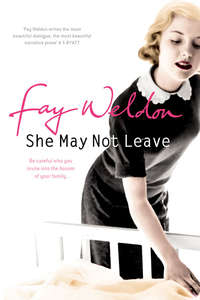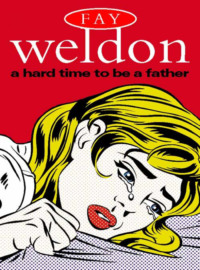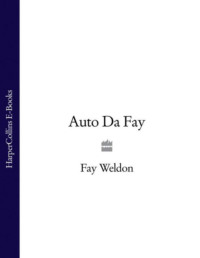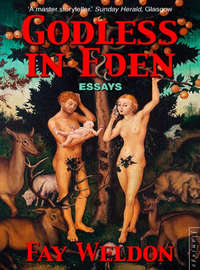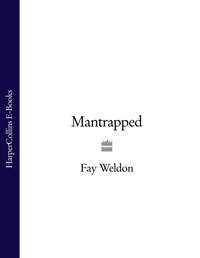
Полная версия
Remember Me
Margot smiles unwillingly. Is there a complicity between the two women? Yes. They are united in something not very nice: a dislike of Lily for being what they would hate to be, yet want to be. And besides, Jarvis wronged Margot: Jarvis wronged Madeleine. They are sisters in rejection, if nothing else.
‘At least,’ says Madeleine, ‘Hilary’s not been used to babysit for the snotty brat.’ Madeleine slipped a disc the week Jonathon was born, and lay on her back, in hospital and out of it, for some three months after the birth. The pain was intense, overwhelming even grief and jealousy. These days she contents herself with referring to Jonathon as the snotty brat. Jonathon should think himself lucky it’s no worse.
‘No,’ says Margot, oh, wicked Margot, ‘I’m doing that today.’ Madeleine smiles.
‘Fancy finding a human being in this shit-house,’ says Madeleine. ‘But you’re the doctor’s wife, aren’t you? Hilary told me about you.’
There Margot sits, in another woman’s house, on that woman’s enemy’s side. Oh, Margot feels pleasure in it. A manic malice, momentary but there: felt like a contraction in her private parts. Was it malice, or desire, which led her up the stairs with Jarvis, Madeleine’s husband? Love of the male, or spite against the female?
‘Jonathon isn’t a snotty brat,’ says Margot, in the interests of truth and kindness, recalled to sanity by her fondness for Jonathon. ‘He’s a very nice child.’
‘Then I can’t think who he takes after. Can you?’
‘Hilary is very fond of him. So am I.’
‘Yes, but you’re very nice,’ says Madeleine. ‘The mother we should all have had.’ And then, the words issuing out of some blackness in her head. ‘If anything happens to me I don’t want them to have Hilary. I’d like you to take her.’
Margot is startled. Madeleine sits on the edge of the white woolly sofa, her jeans limp with age yet stiffened by grease, dirty toe tapping. But Madeleine’s face, downcast, is beautiful: her voice seems to come out of the future, or the past, to have been heard by Margot over and over again: and her very words have the ring of familiarity.
‘What should happen to you?’ says Margot eventually.
‘I don’t know,’ says Madeleine. ‘I look forward into the future and it’s black. It’s my only real worry: what would happen to Hilary if I died? And all kinds of things happen to people. You put all your eggs into one basket and the handle breaks. Look at me. Yolk and mess everywhere. Now look!’
Now look indeed. What a handsome girl she’d been; up from the sticks, bright as a button. A father lost to another woman, true: a mother half blind, suffering from epilepsy (a war-wound really; struck on the head by an aircraft propeller when a young WRAC, though she must have been half-daft, to begin with, to have been standing in its way, as Madeleine kept remarking, entertaining her student friends with funny tales from family history – well, how else to deal with it?) – but never mind, for a time, at any rate, for lovely lively Madeleine, youth, energy and hope seemed to be winning over the disappointment of childhood, and idealism over anger, and her own griefs sublimating nicely, even creatively, into understanding and compassion. But then what happened? What does happen? The scar tissue of the past, as youth fades, hardening, coruscating, making itself more and more felt; or perhaps the prognosis was just too optimistic in the first place? Madeleine, linked to Jarvis – a man amiable enough, surely: without malice (much) and an inheritance to boot – abandoning her studies, her life, herself, in the interests of art (oh Art, Art, what deeds are not committed in thy name?). Madeleine, linked to Jarvis, suffered some kind of dismal change. Principle degenerated into self-righteousness. The sense of shared sorrow into self-pity.
As to love, after thirteen years of marriage Madeleine has all but forgotten what the word means. Jarvis, of course, has not. Sex is good enough for Madeleine, not for Jarvis. Jarvis falls in love with Lily. Who’s to blame him? His solicitors hurried the divorce through three months before the Married Woman’s Property Act came into effect. (Madeleine’s solicitors, of course, had not even heard of it.)
Who will take responsibility for Madeleine’s situation?
No one.
Madeleine must shoulder it herself. Madeleine means to do so. Something in Madeleine, something somewhere, perhaps her sleeping, not her waking self, doesn’t give up: intends eventually to return – perhaps after the menopause, when she can be her wombless, uncyclical self again – to the glory and cheerfulness of her youth.
Madeleine should get a move on, if that’s the case.
‘Be careful,’ says Madeleine to Margot now, ‘it could happen to you.’
Margot smiles, embarrassed. She feels threatened. Philip fall in love, run off, leave, abandon her? Is this what Madeleine is wishing on her, in return for that passing complicity? One should leave misfortune alone: stand well clear. Bad luck is as catching as the measles.
‘You may think I’m a neurotic bore,’ says Madeleine, ‘but it seems to me to be the least I can do for my sex to set myself up an object lesson. The world being what it is (not to mention me). I’m not the kind of person of whom people say, what a lot of friends she has, how truly gay and popular – using gay in either sense, though I’ve tried that too – and the upshot being, I’m all Hilary has. That’s where it all leads one. Mother and daughter. How it starts, how it ends.’
‘She has her father,’ says Margot.
‘Jarvis? He’s no kind of father to her. And what kind of man is he? A nothing. Jarvis had a little talent once: but he was too trivial to sustain it. He drank it all away. And then, of course, Lily got hold of him. All he’s got left is his business and that’s failing, and of course his cock, but who could sustain an interest in that? I couldn’t, I’m sure.’
Jarvis’s cock. Margot shivers not just at the crudity of the words, but at the shame of the memory.
The sense of complicity has gone. Margot is alienated, as perhaps Madeleine intended. But the complicity was there, for long enough. Some connection has been made; some fragile cogs have interlinked. Malice is a powerful force. Margot’s malice, unacknowledged, welling up, spilling over, perhaps more powerful than most. The flicker of an unkind smile, returned: the sly look, amusingly exchanged, and more travels between two people than you might suppose; the very devil floating, as you might say, on the beam of interpersonal communication.
10
Be bold!
Madeleine, returning home, finds a letter from a computer-dating firm, giving the name and telephone number of a Mr Arthur Quincey of Cambridge as a possible marital contact. (See how Madeleine, clinging to the past, still scrabbles for a future?) Mr Quincey is described in the letter as being forty-three years old, tall, slim, dark, Anglo-Saxon, well-educated, owning own house and having no objection to slim dark lady under forty with own child. Madeleine rings the Cambridge number: a landlady fetches Mr Quincey; Madeleine finds she has agreed to be in Cambridge, yes, Cambridge, at seven thirty that evening in order to be taken to the pictures. Mr Quincey’s voice has a quiet, wheedling insistence; she recognises it as the voice of the male in the grip of sexual desperation, whose determination it is to bring fantasy down to the realms of reality. It is hard to resist.
‘It’s like being a girl again,’ she complains to Renee, who lives above Madeleine, on the ground floor. Renee has left her husband, and had her children taken from her. It is a house full of women without men, and children without fathers. As you begin, so you end. To-ing and fro-ing to the snap of male fingers. Only in the old days one did it in hope, now it’s in terror.’
‘Terror of what?’ Renee is a delicate, wide-eyed young woman, fresh, long-legged and clear-complexioned, like some outdoor girl on an old-fashioned chocolate box. Renee has two equally pretty little daughters, sometimes with her. Renee claims to be bitter; Renee was abandoned by her father, and then abandoned her husband. Renee has, she says, renounced men. Renee has her girlfriends instead, from whom, physically and emotionally, she extracts comfort, company and solace. From time to time Renee kindly offers the same to Madeleine, in the shape of a warm and companionable bed, but Madeleine is too conscious of her own raggedy body and troubled mind to be able to offer herself on such simple terms. Although, as Renee complains, she seems perfectly well able to offer herself to any passing man.
‘Terror of loneliness,’ says Madeleine. ‘And being rejected, and of loss of status, and the general humiliation of being a woman without a man. Isn’t that terror enough?’
‘You’re so old-fashioned,’ says Renee. ‘You think life for a woman has to revolve round a man.’
‘I can’t help it,’ says Madeleine, old Madeleine, to this silky young woman. ‘I feel it does, though I know it doesn’t. Without a man to revolve around, I scarcely seem to exist. Yet when I had one, I was brave enough.’
So she was. Bold, too bold! Neglecting the washing-up on the grounds that it was trivial, housework humiliating, cooking a waste of human energy and world resources. Taught within a year of marriage that sexual fidelity was meaningless, Madeleine learnt the lesson well. Once having discovered Jarvis, disappeared at his own twenty-ninth birthday party to the (comparative) privacy of the spare room, interrupted him in mid-intercourse with a dumpy nurse, on the spare bed amongst the guests’ coats, and having retreated unseen, too distressed to speak or make her presence known, too shocked for action, then recovered quickly and set about using the incident to her own advantage.
‘Jealousy,’ Madeleine would say, returning home to Jarvis from God knows where but suspiciously late, smelling of drink and sex, ‘is such a low, disgusting emotion! Don’t you think so? Surely we’re above that, you and me? We agreed before we were married that we would never be sexually possessive.’ And though no such agreement had ever been made, though Jarvis had no idea that Madeleine had discovered him and the transient Margot (for Margot it was, though Madeleine never knew her name, never saw her face) together on the bed that rainy birthday night amongst the damp coats, something in Jarvis, amounting perhaps to sheer forgetfulness, but no doubt bolstered up by some weakness, some guilt, some meanness learnt from his stepfather, prevented him from finding the energy to contradict her. Easier, for a time, to admire her.
Madeleine was brave, oh yes she was, with the courage of anger: what an angry little girl she’d been, smearing the walls with far worse than puffed wheat, swearing at her mother, arms clutched round her father’s pillar legs (in the process of being dislodged, she’d once had her thumb broken, so possessive, so determined, so desperate was her grasp).
‘Someone’s chalked a sentence on a wall in Shepherd’s Bush,’ says Renee now. ‘It says – a woman without a man is like a fish without a bicycle.’ But Renee offers Madeleine the loan of her new white silk shirt for the evening, though it is much against her principles. Pandering to heterosexual vanities! Madeleine accepts, with pleasure. Quincey is a nice name, Madeleine thinks. Madeleine Quincey.
The afternoon proceeds.
Hilary, horrified by her appearance, leaves the hairdresser in tears. Lily is irritated by this display of ingratitude, and what is more, is landed with Hilary for the rest of the day. For Hilary refuses to return to school: not only will it be quite obvious to everyone that she has been to the hairdresser, and not to the dentist, but how can she face her classmates looking such a freak?
Margot collects Jonathon from playgroup, takes him home with her and serves veal-and-ham pie and salad for lunch. She bandages Laurence’s bruised hand, assuming, rightly, that Philip will not have the time to do so. Lettice declines to have Jonathon sit upon her knee. Lettice always appears fearful of the demands of babies and small children.
Laurence tells Lettice that in the last 600,000 years some 74,000,000,000 people have been born and died. ‘So what,’ says Lettice. The children return to school. Philip returns to his rounds. Three flu’s, one pneumonia, one tonsillitis, one manic depression, and one terminal cancer.
Miss Maguire, muttering up and down the High Street, calls a black man a stinking nigger. He offers her his card and suggests she sees a doctor. He is a psychiatrist. Miss Maguire says she’s under the doctor. The psychiatrist, relieved of responsibility, pats her kindly and proceeds.
Lily goes to Selfridges Food Store and there buys a crown roast, some mangetout, some Jersey potatoes, some lump-fish roe, double cream, French loaves, cheese and six lemons.
A shorn, sulky, tearful Hilary helps Lily carry the provisions home. Let us not suppose that the excursion to the hairdresser was organised totally with the image of Hilary as beast of burden in mind. Not totally.
When Lily returns home, she finds a message on the answering machine. The Bridges cannot come to dinner after all. Harvey Bridge has flu, or so Moira alleges, in a voice brimming over, Lily thinks, with insincerity. It may be the quality of the tape, of course, but Lily doubts it.
Lily throws the Brie across the room, in petulance, and Hilary stops to wipe up the spatters before finally going round to Margot’s to pick up Jonathon. She wears a headscarf. It is by now three fifteen.
Madeleine uses Renee’s phone to telephone Lily, and reverses the charges as is her custom. Madeleine speaks coldly but politely, finding it difficult to abuse or insult Lily to her face. Though once it was very different! These days Madeleine suffers from the general paralysis of the defeated. Madeleine ignores the matter of the hairdresser and requests merely that Lily will keep Hilary for the night, as she, Madeleine, is going out: and will Lily ask Hilary to ring her at Renee’s between four and four thirty. Lily acquiesces to both requests, charmingly, with the sweet chilliness she reserves for her enemies. Madeleine has the vision of some biting summer drink, served in a thin glass with a frosted rim. Typical, thinks Lily, putting the phone down. Mad Madeleine using Lily as a dumping ground for Hilary. Not in the least grateful.
Hilary returns home with Jonathon, saying that Margot is annoyed at having had to keep him so long. It is not strictly true, but Hilary will have her revenge. What’s more, Hilary says, Madeleine was round at Adelaide Row, looking for Hilary and furious because she wasn’t at school. Lily is horrified. Is the persecution going to begin again? Is she never to be free of Jarvis’s past?
Lily forgets to ask Hilary to ring her mother.
Lily, instead, anxious to undo any damage Madeleine may have done to Jarvis’s image, not to mention her own, telephones Margot and asks if she and her husband would care to come to dinner that evening? A spur of the moment affair, she claims. A panicky action, born of general upset, Lily knows as soon as she has done it.
And done it is. Margot accepts the invitation; and then dances round the kitchen like an excited child, relieved of the necessity of cooking this, the 5,323rd dinner of her married life.
Lily actually cries.
11
Everything has meaning. Nothing is wasted. Only the young believe that they can stand alone in the world, for good or bad, their own master, independent of the past – will cross the very globe, from south to north, like Lily, in the blithe belief that she will thus put her past behind her.
As we grow older we sense more and more that human beings make connections in much the same manner as the basic materials of matter: that we cluster, in fact, as do those complex molecular structures which we see as models in physical laboratories. The linkages are unexpected: they can be of objects, plants, places, events, anything. It is perhaps why we should take good care to polish furniture, water plants, telephone friends with whom we have nothing (apparently) in common, pay attention to coincidence, and in general help the linkages along, instead of opposing them – as sometimes, in our panic at our very unaloneness, we are moved to do.
Consider now these linkages: these interconnections:
Miss Maguire, now fifty-seven, was at the age of twenty the general maid at No. 12 Adelaide Row where Lily now lives. Her employers were a Mr and Mrs Karl Kominski.
Mr Karl Kominski’s sister Renate, in 1942 a refugee from Poland living in the Bay of Islands, New Zealand, bought half a pound of pressed ham from Lily’s father Matthew. That was the day before Matthew was called up and had to leave his pretty young English wife Ida behind to run the business, which she declined to do.
Margot’s friend Enid, now living at 24 Kafka Rise (which incidentally lies parallel to a Thomas Mann Crescent, at right angles to a Goethe Avenue, and is bisected by Balsac Street) has a pot plant which originated, as a cutting, from a plant which once flourished in Hamburg in the thirties, and belonged to old Mrs Kominski, Renate and Karl’s mother.
Enid’s husband Sam is an estate agent. In the golden days when money meant something and a house was a place you lived in and not the focal point of the occupier’s monetary, social and emotional fears, Sam’s first sale was of 12 Adelaide Row to Madeleine and Jarvis Katkin. That was in July, 1960, six months before Madeleine had discovered Jarvis copulating amongst the furs with a passing party guest.
Both Madeleine and Jarvis were overjoyed by the condition of the house, which had not been repaired, let alone painted, inside or out, since 1939. But whereas Jarvis saw the house as a challenge to his architectural skill, his ability to make something new and glorious out of the wreckage of the past, Madeleine’s pleasure found its source in the delapidation itself. She did not wish anything changed. Even in those days her suspicion of prosperity and comfort ran deep, though she chose to blame her circumstances rather than herself for the bleak discomfort in which she always lived. Madeleine declined Jarvis’s offer of joint ownership. No, she wished to be free, to have no ties. No dogs, no cats, no budgies, no carpets, no pot plants, no copper-bottomed saucepans. No Jarvis, one would almost have thought. The sink, later the launderette, when one finally opened in the new shopping precinct round the corner, was quite adequate to wash the clothes in.
Конец ознакомительного фрагмента.
Текст предоставлен ООО «ЛитРес».
Прочитайте эту книгу целиком, купив полную легальную версию на ЛитРес.
Безопасно оплатить книгу можно банковской картой Visa, MasterCard, Maestro, со счета мобильного телефона, с платежного терминала, в салоне МТС или Связной, через PayPal, WebMoney, Яндекс.Деньги, QIWI Кошелек, бонусными картами или другим удобным Вам способом.


